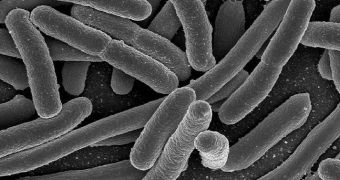Even if hand washing has been demonstrated to contribute to eliminating bacteria, there are some aspects pertaining to this habit that may in fact contribute to accelerating the growth of dangerous microorganisms on the hands.
For example, not drying the hands all the way after washing them can contribute to setting the stage for massive bacterial developments. The moist environment offers perfect conditions for some dangerous types of bacteria.
Additionally, it was also demonstrated in studies that people who rub their hands together as they are being blown by a special drier also display increased concentrations of microorganisms on their skins.
Many individuals prefer using their clothes to dry their hands after washing, but that is sometimes equivalent to not washing their hands at all.
Experts stress the fact that properly drying the hands after they are washed is a key part of preventing infections from setting in.
Details of the new investigation appear in the September 7 issue of the esteemed scientific Journal of Applied Microbiology. The work was conducted by experts at the University of Bradford, in the UK.
The team looked at how wiping hands off different surfaces contribute to bacterial exchange between the two. They analyzed paper towels, common hand dryers, and high-velocity air jet hand dryers.
The latter does not rely on evaporation, liked the common type of dryer, but rather on stripping water away from the hands by using very powerful air jets.
When we wash our hands, not all bacteria on them are eliminated. In fact, some may find it easier to transfer to other surfaces in the damp environment our hands provide if we don't dry them properly.
Bacteria called commensals exist on the hands at all times, but other species can also be added, such as for example when we come in contact with raw meat.
Such products usually contain large amounts of very dangerous organisms, and special precautionary measures need to be taken to ensure that these bacteria don't spread, AlphaGalileo reports.
“Good hand hygiene should include drying hands thoroughly and not just washing,” explains Dr Anna Snelling, who is a senior lecturer in microbiology at the university.
“The most hygienic method of drying hands is using paper towels or using a hand dryer which doesn't require rubbing your hands together,” she goes on to say.

 14 DAY TRIAL //
14 DAY TRIAL //